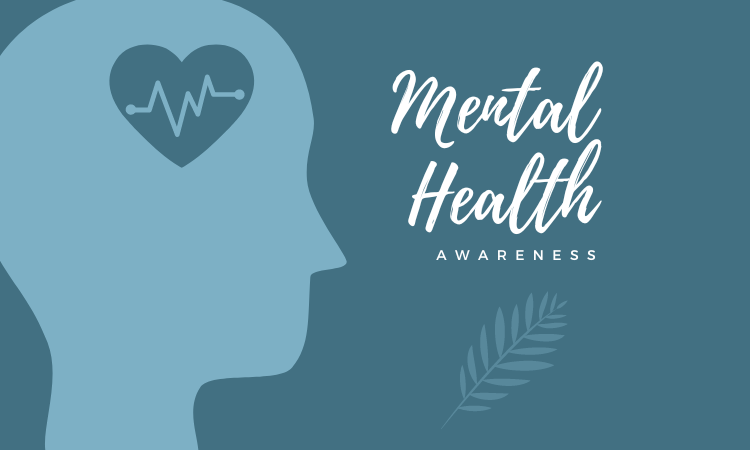

Mental Health Education
Mental health has become a growing concern in today’s society. The increasing prevalence of mental health issues, such as anxiety and depression, among individuals of all ages, highlights the need for a comprehensive approach to mental health education. Social emotional learning (SEL) provides an effective framework to enhance mental health education and promote emotional well-being among students. This essay will discuss the importance of mental health education, the benefits of incorporating SEL in educational curriculum, and strategies to enhance mental health education through SEL.
Importance of Mental Health Education:
1. Targeting Stigma: Mental health education helps to break down stereotypes and reduce the stigma surrounding mental illnesses [1]. It enables individuals to understand that mental health is an integral part of overall well-being and should be treated with equal importance as physical health.
2. Early Intervention: By educating individuals about mental health from an early age, we can enable early identification of potential issues and intervention. This can help prevent the development of more severe mental health problems later in life [2].
3. Positive School Environment: Mental health education contributes to the creation of a positive school environment. When students are knowledgeable about mental health, they are more likely to support and empathize with their peers who may be struggling, thereby fostering a sense of belonging and reducing bullying and harassment [3].
Neuroscience has shed light on how Social Emotional Learning (SEL) is linked to the brain’s development and functioning. SEL involves areas such as the prefrontal cortex, which is responsible for decision-making and emotional regulation. As children and adults engage in SEL activities, the brain’s neural connections strengthen, enhancing skills like empathy and self-awareness.
Neuroplasticity, the brain’s ability to adapt and change, plays a role in SEL. Positive experiences, such as nurturing relationships and emotional validation, can lead to the growth of neural pathways associated with emotional well-being. Conversely, adverse childhood experiences might affect brain development negatively.
Neurotransmitters like oxytocin and dopamine are involved in social bonding and positive emotions, which are central to SEL. Activities that foster trust and cooperation, such as teamwork and collaborative problem-solving, trigger the release of these neurotransmitters.
In summary, neuroscience shows that SEL engages specific brain regions, reinforces neural connections, and influences neurotransmitter activity, all of which contribute to emotional regulation, social skills, and overall well-being.(4)
Benefits of Incorporating SEL in Education:
1. Improved Academic Performance: Research has shown that students who have undergone SEL programs tend to have improved academic performance [5]. These programs equip students with important social and emotional skills, such as self-awareness, self-management, and relationship building, which are essential for academic success.
2. Emotional Well-being: SEL enhances emotional well-being by providing students with the skills to manage their emotions effectively. This leads to decreased stress levels, better mental health outcomes, and improved resilience to challenges in life.
3. Social Skills Development: SEL programs promote positive social interactions and help students develop healthy relationships, empathy, and effective communication skills [6]. These skills are essential for personal and professional success, as they enhance collaboration, teamwork, and conflict resolution abilities.
SEL can significantly contribute to better Mental health at home. By focusing on skills like self-awareness, self-regulation, empathy, and effective communication, SEL helps family members understand and manage their emotions, which in turn can reduce stress and anxiety. Open discussions about feelings and concerns create a supportive atmosphere, reducing feelings of isolation. SEL also encourages positive relationships and conflict resolution, fostering a sense of belonging and emotional security within the family. These practices collectively promote emotional well-being and contribute to better mental health for everyone at home.
Strategies to Enhance Mental Health Education through SEL:
1. Curriculum Integration: Mental health education should be integrated into the existing curriculum, ensuring that students receive a comprehensive understanding of mental health [7]. SEL concepts can be introduced in subjects such as psychology, health education, and even within traditional subjects like English or history, where relevant topics can be discussed.
While there are many “in school” initiatives to educate children regarding mental health, few schools provide strategies and solid interventions to help students with their specific areas of concern within the SEL realm.
Organizations like “The MindSyncKids” allows parents and children to select their area of concern and receive one on one education via their instructors. Activities and instruction are centered around positive psychology, problem solving and mindfulness.
2. Teacher Training: It is crucial to provide teachers with the necessary training and resources to effectively incorporate SEL into their teaching practices. This includes training on recognizing signs of mental distress, providing emotional support, and creating a safe and inclusive classroom environment [8].
3. Parental Involvement: Parents play a vital role in supporting mental health education at home. Schools can organize workshops for parents to equip them with the necessary knowledge and skills to address mental health issues and support their children’s emotional well-being [6].
4. Collaborations with Mental Health Professionals: Collaborations between educational institutions and mental health professionals can provide additional support in enhancing mental health education [9]. Mental health professionals can be invited as guest speakers, and schools can establish partnerships with local mental health clinics to provide resources and referrals for students in need.
Conclusion:
Enhancing mental health education through social emotional learning is essential for promoting the well-being of students. By targeting stigma, intervening early, and creating a positive school environment, mental health education can have a significant impact on individuals’ lives. Incorporating SEL in education enhances academic performance, emotional well-being, and helps develop crucial social skills. Strategies such as curriculum integration, teacher training, parental involvement, and collaborations with mental health professionals play a fundamental role in enhancing mental health education. By adopting a comprehensive approach to mental health education, we can create a society that prioritizes emotional well-being and supports individuals in their journey towards mental health.
Dr Sanjiya Arora, MD
Tiffany Cappelen, Chief Operations Officer
Mind Sync Kids
References
1. https://www.mayoclinic.org/diseases-conditions/mental-illness/in-depth/mental-health/art-20046477
2. Colizzi, M., Lasalvia, A. & Ruggeri, M. Prevention and early intervention in youth mental health: is it time for a multidisciplinary and trans-diagnostic model for care?. Int J Ment Health Syst 14, 23 (2020). https://doi.org/10.1186/s13033-020-00356-9
3. https://www.k12.com/parent-student-resources/school-safety/mental-health/
4.https://www.ncbi.nlm.nih.gov/pmc/articles/PMC5573739
5.https://files.eric.ed.gov/fulltext/ED505370.pdf
6. https://www.edutopia.org/blog/why-sel-essential-for-students-weissberg-durlak-domitrovich-gullotta
7. Wiedermann CJ, Barbieri V, Plagg B, Marino P, Piccoliori G, Engl A. Fortifying the Foundations: A Comprehensive Approach to Enhancing Mental Health Support in Educational Policies Amidst Crises. Healthcare (Basel). 2023 May 14;11(10):1423. doi: 10.3390/healthcare11101423. PMID: 37239709; PMCID: PMC10217808.
8. https://files.eric.ed.gov/fulltext/EJ1145076.pdf
9 August 2022 | School Mental Health, Vol. 14, No. 4
